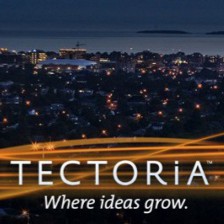 In the first of a series of articles dedicated to Victoria success stories in the technology sector, MaryLou Wakefield of Wakefield Communications profiles Archipelago Marine Research.
In the first of a series of articles dedicated to Victoria success stories in the technology sector, MaryLou Wakefield of Wakefield Communications profiles Archipelago Marine Research.
The Archipelago Marine Research offices sit on the waterfront overlooking West Bay Marina with the Straits of Juan de Fuca in the distance. The location is one of the many perks of working in Victoria, and particularly fitting for a company that’s passionate about sustainable marine resource management. Established in 1978, Archipelago is BC’s largest provider of at-sea and dockside monitoring systems for commercial fisheries.
Archipelago develops electronic monitoring (EM) programs, services, and systems for observing, recording, and reviewing fishing activity at sea, including quota-management efforts, protected-species interactions, and by-catch mitigation strategies. (By-catch is a term used to describe fish or other animals caught unintentionally.)
 Pointing out the window, President and CEO, Shawn Stebbins sites a number of projects involving development in the city’s Inner Harbour that his company is involved with. “Our role is to take an objective, scientific look at the data and then help people understand and interpret it to address the potential impacts of the development. We remain objective and facilitate the process so others can make the best decision based on the best data,” he said.
Pointing out the window, President and CEO, Shawn Stebbins sites a number of projects involving development in the city’s Inner Harbour that his company is involved with. “Our role is to take an objective, scientific look at the data and then help people understand and interpret it to address the potential impacts of the development. We remain objective and facilitate the process so others can make the best decision based on the best data,” he said.
Stebbins points to the company’s innovations in electronic monitoring as an example of the products and services that support their long-term vision of creating sustainable fisheries. By equipping commercial fishing vessels with cameras, sensors, and software, Archipelago’s monitoring systems help fisheries manage and account for what is being caught, including by-catch and protected species like marine mammals, turtles and seabirds. While the system is widely used throughout British Columbia, it has potential for application in Europe, the United States, New Zealand, and Australia.
Realizing that potential, the company’s vision for growth in the next two to three years is 10 to 20 per cent with opportunities to bring in new talent for sales, project management, developers and a senior biologist. Archipelago currently has a staff of 170 made up of biologists, conservationists, research and development, engineers, technicians and administrative staff, and a large number of field staff. “We attract people who care deeply about the marine environment and want a balance between work and family. They want to be part of a community rather than just have a job,” Stebbins added. Beyond that, employees must be a fit with the company values of accountability, integrity, innovation, respect and community.
What do employees say is the best thing about working at Archipelago Marine Research? “They like the relaxed atmosphere and flexible working hours. We focus on getting the job done and done well. And, they’re excited and motivated by the value their work brings to the world,” he said.
What makes the VIATeC community work from your point of view? “It’s an open and collaborative group of smart people who are willing to help and support each other. It feels like we’re all in it together,” he said.
What could VIATeC look like in the future? Stebbins acknowledges the good work the Executive Director and board have done to create strong connections and build community. “I’d like to see it evolve and expand to include more companies and become even more of a magnet for talent.”
MaryLou Wakefield


Great article, and great information about local companies. Thank you.